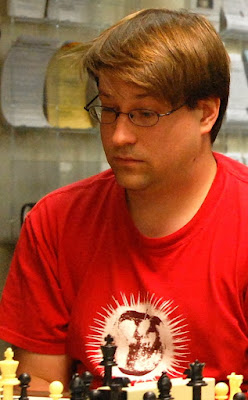While reading and watching Arthur Miller's Death of A Salesman I realized it was that years of being a salesman had wired Willy Loman's mind to view things a certain way. In life imitates art once again, my life experiences have been bolstered by modern psychology, psychiatry, medicine, and biology that indicates the same thing: you are what you do.
People who invest significant time being involved with chess are improving their thinking and analytical powers just like a body builder strengthens their muscles by lifting weights. Reinforcing this idea is David Shenk's book The Immortal Game - he claims that chess rewires the brain and all mankind for the last 1500 years has been drawn to chess, making chess the greatest game in human history.
The good news is most of us in the US alive today will live to our mid 80's. The bad news is half of the people in their mid 80's today have various stages of Alzheimer's disease . Yet it has been proven in numerous studies that playing thinking games defends the brain against this disease. I hope this fact keeps the boomers coming to tournaments; unfortunately chess demographics indicate that we are losing 6 to 8 percent older players each year.
Now for you younger folks there are benefits as well. Obviously kids who study chess learn how to deal with situations and apply their analytical skills in real life situations, albeit they reside on 64 squares. Yet successful application of pieces on these squares is based on learning the mechanics of how to generate the most effective force in combination with dissolving one's opponents ability to do the same. Being trained as be a middle school teacher we became keenly aware of the importance of pushing kids to take on the most difficult mental challenges they were capable of handling at the earliest stages that their cognitive ability could handle the challenge. Add to that the need for every kid to find their passion, usually something that's not initially or inherently easy, but becomes something they learn to excel at; which provides, the mortar that builds and glues their self esteem and ego. All my kids play internet games and while these games are quite challenging I contend that chess allows you to create a new reality at the moment. The reality is out in front of us unhidden, present yet so complex.
Upon waking up on the mornings that I know I am going to play chess my mind already is processing in a different way. This may sound weird, but my thinking is different when I even know I'm going to play chess. What does all this mean? Well it means that if chess is your past time, there are collateral improvements in your thinking, increasing capability, and protection your future thinking ability. Pretty heady stuff indeed.How can we promote chess as the ultimate brain game?
Please comment
Thank You
Mike Griffin
01/26/2010









